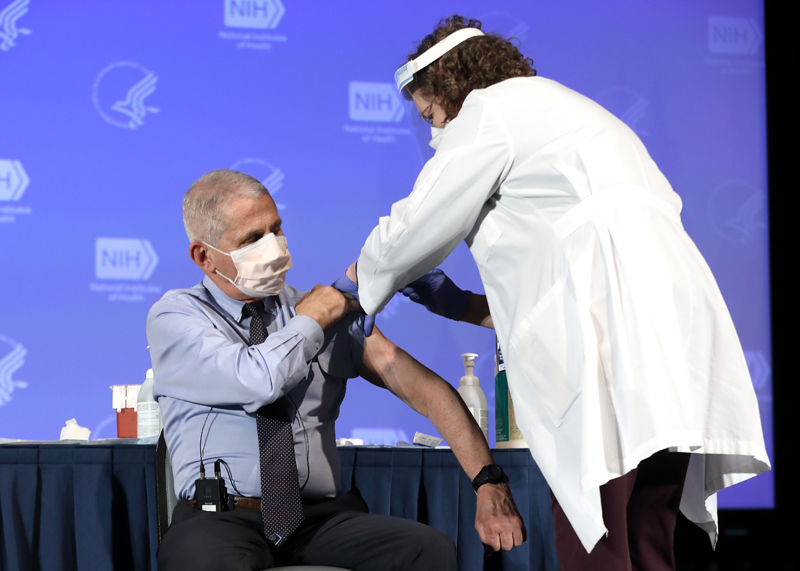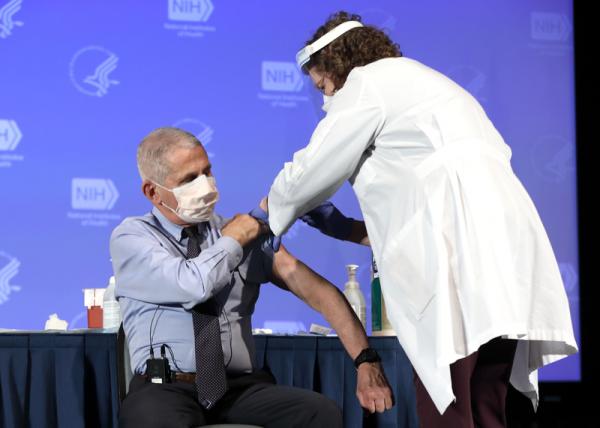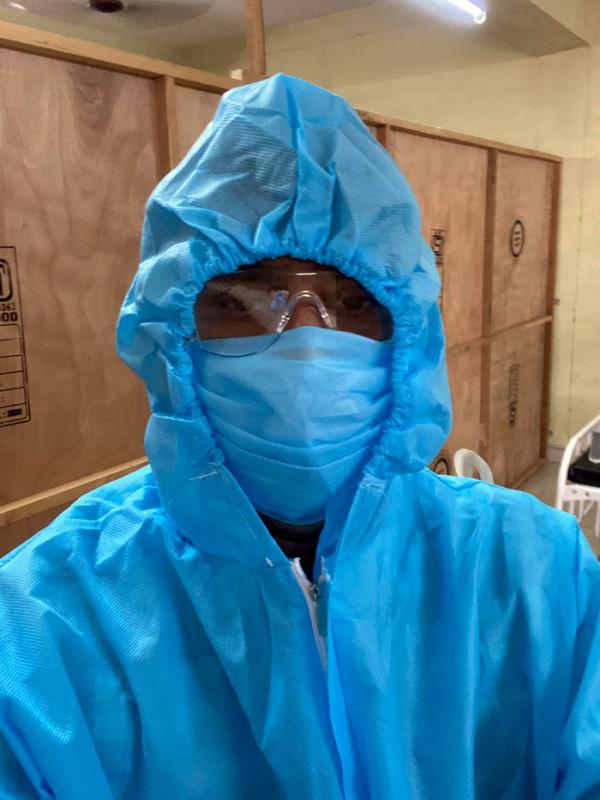KID REPORTERS’ NOTEBOOK
Variants Prolong the Coronavirus Pandemic


Dr. Anthony Fauci, a top infectious disease official in the U.S., is calling on all eligible individuals to be vaccinated against COVID-19.
On December 14, 2020, the United Kingdom released concerning news: A new COVID-19 variant had emerged in Kent, in Southern England. Called the Alpha variant, it was one of the first of more than 60,000 recorded COVID-19 variants to cause alarm. Now, the Delta variant, which ravaged India in the spring, is spreading across the world.
The Delta variant is 50% more contagious than the Alpha variant, which is 50% more transmissible than the original COVID-19 strain. In the past week, the number of new COVID-19 cases in the United States has risen to about 27,000 per day. Most of the serious cases are among people who have not been vaccinated.

The spread of the Delta variant ravaged India during the spring.
THE STRONGEST VIRUS WINS
A virus has one goal: to replicate. When it infects the body, it uses the host cells to produce more copies. However, during this replication phase, there can be errors in copying the genetic code, or DNA. This is called a mutation.
This small change can alter how the virus works. It can make the virus weaker or stronger by modifying its transmissibility and mortality rate.
“The strongest virus will win out over others,” says Donald Forthal, the chief of the Division of Infectious Diseases at the University of California, Irvine. “As long as there are people around who are susceptible to infection, the strongest [virus] will spread best.”
STOPPING COVID-19
The increasing transmissibility of the Delta and Alpha variants is threatening the progress made against COVID-19 with vaccines. According to the Israeli Health Ministry, the Pfizer vaccine efficacy rate has now dropped to 64% since the Delta variant emerged. Previously, it had been 95% effective.
“Even though infections can occur in vaccinated people,” Forthal told me, “the vaccines are good at preventing serious infection.” Despite the efficacy of the vaccines, many people in the United States and elsewhere are refusing to be vaccinated.
The variants are creating new symptoms. “During the second wave in India, in March, we saw a lot more people getting admitted to the hospitals with silent hypoxia,” Somit Kumar, a physician on the front lines in Coimbatore, told me. “We didn’t see this with the original coronavirus.” The disease causes a dangerous decrease in an individual’s oxygen level.
Scientists say that these variants will continue to become deadlier and deadlier until a significant number of people around the world are vaccinated. In many countries, vaccines are not yet widely available.
“The more people who are vaccinated,” Forthal says, “the fewer opportunities the virus has to replicate, mutate, and spread.”
